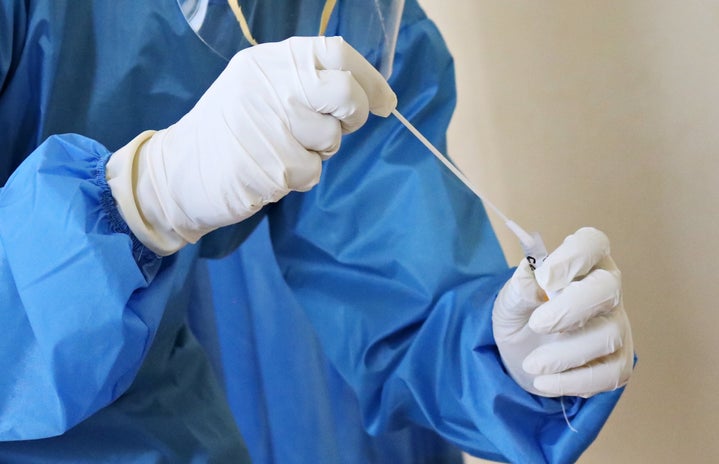Billionaire, Elon Reeve Musk, thrives on transforming strange and dystopian concepts into tangible realities. From his grandiose visions of constructing an underground vacuum train to his ambitious plans for colonising Mars, the tech entrepreneur consistently pushes the boundaries of innovation. Amidst his portfolio of groundbreaking ventures stands the highly contentious Neuralink project. Earlier this year, Musk once again captured global attention with a shocking announcement: “The first human received an implant from @Neuralink yesterday and is recovering well.” This declaration was made on his somewhat newly acquired social media platform, X, thrusting Neuralink into the spotlight and arena of widespread public scrutiny.
In an age where artificial intelligence has reached a notable level of ubiquity, Musk’s Neuralink aims to embed an implantable chip into human brain tissue to treat complex neurological conditions, e.g. Alzheimer’s disease. Thus, Musk has created a symbiotic melding of humans and artificial intelligence, once thought to be a fictitious and far-fetched demonstration of cyborgism.
I found out about Neuralink through a dear friend of mine, Alice, a fellow student here at King’s College London (KCL). Despite our differing academic backgrounds—she, a Biochemistry student, and myself studying Digital Media and Culture—we found common ground in our fascination with the interplay between digital technology and the human experience.
“I would immediately think of the potential issues of the body rejecting the implant,” Alice began. “Or even if initially, the body was able to accept the implant, my immediate response would lean towards a potential future rejection, which would have fatal consequences.” She then moved on to question the regulatory side of things, “It’s shocking that a non-vital procedure this invasive would be approved to be experimented on humans, let alone have the potential to be rolled out on a much broader basis.”
Alice raised an important point here on the far-reaching implications of the widespread adoption of Neuralink technology, particularly in light of Elon Musk’s ambitious vision of achieving “human/AI symbiosis”. Musk’s assertion that this symbiosis could enable individuals to control devices merely through their thoughts, e.g. ordering takeaway, underscores the profound potential impact of such innovation. However, critics have cautioned against the many risks involved in this procedure, including Anne Vanhoestenberghe, a professor at KCL specialising in active implantable medical devices. “You’ve got to ask yourself,” she argued, “would you risk brain surgery just to be able to order a pizza on your phone?”
Despite heavy pushback from experts and the public alike, (56% of American adults agreed that “widespread use of brain chips” would be bad for society), the U.S. Food and Drug Administration gave “the company clearance” to undergo its first rounds of human trials last September. So ultimately, this leaves us to ponder a very important question: What does Neuralink mean for humanity?
Approaching the topic from a digital humanities perspective, it becomes imperative to critically analyse the implications of emerging technological advancements. While techno-optimists like Elon Musk paint a picture of AI enriching lives when used appropriately, it’s essential to scrutinise who truly benefits from innovations like Neuralink and who gets left behind. Bloomberg’s projection of a staggering $10,500 or £8,300 cost for a Neuralink implant underscores a glaring issue of elitism within the tech industry. This raises pertinent questions about accessibility and equity: if this technology remains exclusive to those with financial means, how does it truly serve society as a whole? Moreover, Neuralink has faced criticism over allegations of inhumane animal testing practices. According to Reuters, since 2018, approximately 1,500 animals, including over 280 sheep, pigs, and monkeys, have reportedly been killed in these experiments, sparking public outcry and ethical concerns.
During our conversation, Alice and I also discussed the problematic portrayal of Musk as a groundbreaking figure in brain-computer interface technology. “It’s important to not regard this as some huge breakthrough that came out of nothing,” Alice noted. “Brain interface has been around for quite a while now.” In fact, Neuralink’s creation involved collaboration among several smaller start-ups, many of which have been written out of the narrative of innovation. Among these companies was the British tech firm Sondrel, located on the outskirts of Reading, whose substantial contributions to Neuralink’s advancement have largely remained undisclosed. So, while the promise of Neuralink to enhance lives seems tantalising, it’s vital to acknowledge the darker side of artificial intelligence: its technocratic nature. This means that while artificial intelligence holds immense potential, it could inadvertently deepen existing socioeconomic disparities, leaving behind those without Elon Musk’s resources or influence. As conversations about Neuralink unfold, it is clear that the pursuit of progress must be accompanied by a fervent dedication to fairness and inclusivity. By ensuring equitable access and prioritising ethical considerations, we can harness the true power of technological innovation to benefit everyone, not just the privileged few.


